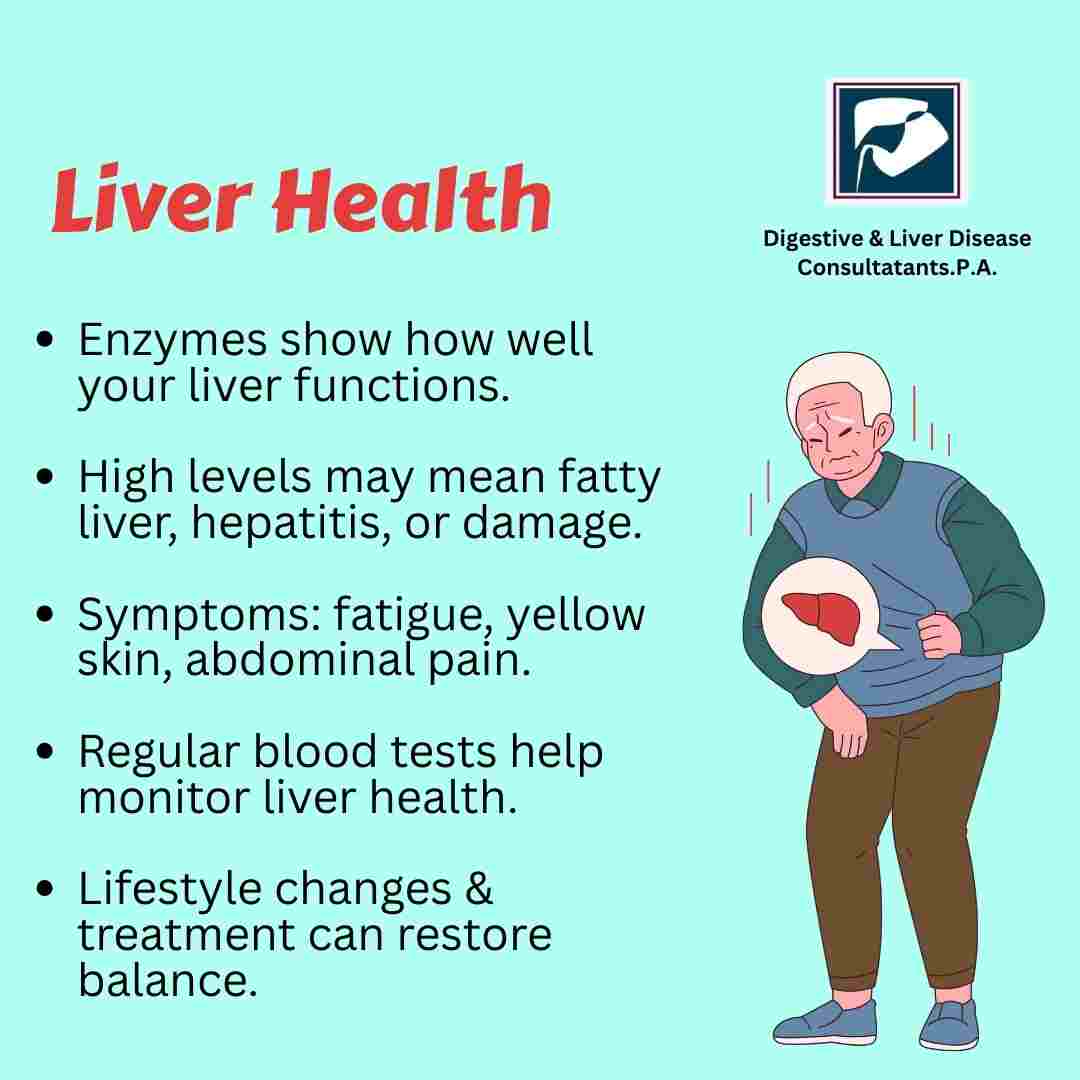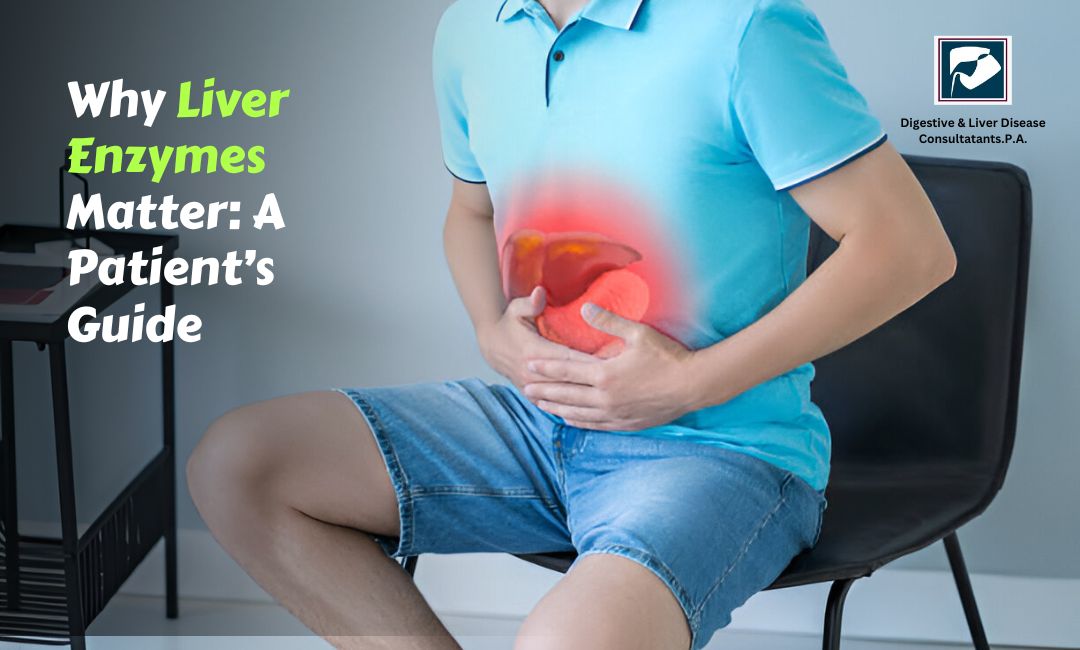If you’ve ever taken a blood test and seen terms like ALT or AST, you might have wondered what liver enzymes are and why your doctor cares about them. Liver enzymes play a key role in keeping your body healthy, and understanding them is an important step in taking charge of your wellness. In this guide, we’ll break down what liver enzymes are, why they matter, what causes them to rise, how they’re tested, and what you can do if your numbers are out of range.
What Are Liver Enzymes?
Liver enzymes are proteins produced by cells in your liver. They help your body carry out chemical reactions that are vital for life, such as breaking down nutrients, filtering toxins, and making proteins your body needs. The most common liver enzymes you’ll hear about are:
- Alanine transaminase (ALT)
- Aspartate transaminase (AST)
- Alkaline phosphatase (ALP)
- Gamma-glutamyl transferase (GGT)
These enzymes are usually found inside liver cells. If your liver is healthy, only small amounts leak into your blood. But when your liver is stressed, inflamed, or damaged, more enzymes spill out, causing levels in your blood to rise.

Why Do Liver Enzyme Levels Matter?
High or abnormal liver enzyme levels often signal that your liver is under stress or not working properly. Elevated liver enzymes are not a disease themselves but a sign that something may be affecting your liver. Common reasons include:
- Viral hepatitis
- Fatty liver (often linked to obesity or diabetes)
- Alcohol use
- Certain medications
- Autoimmune liver disease
- Blocked bile ducts
- Heart problems
When doctors check your liver enzymes, they are looking for clues about your liver’s condition and whether there may be underlying issues needing further attention. Sometimes, mild fluctuations are not dangerous. However, persistent or very high levels often require further evaluation.
How Are Liver Enzymes Tested?
Liver enzyme tests are part of routine blood work, often called a liver function test (LFT) or hepatic panel. You do not need to fast for this test unless your doctor advises it. The test measures the amount of ALT, AST, ALP, and GGT in your blood, along with other substances like bilirubin and albumin.
If any of your liver enzyme results are higher than normal, your healthcare provider will review your symptoms, medical history, and possibly recommend further tests or imaging to pinpoint the cause.
What Do My Results Mean?
Understanding your liver enzyme results can be confusing, but here are some basic tips:
- Mild elevations sometimes happen briefly due to factors like viral infections, strenuous exercise, or certain medications.
- Persistently elevated enzymes usually mean the liver is inflamed or damaged.
- Extremely high levels can suggest a more serious or acute condition, such as hepatitis or a blocked bile duct.
Other factors, including age, gender, and health history, are important in interpreting these results. Your doctor will consider your full health picture before making any recommendations.
Common Reasons for High Liver Enzymes
Nonalcoholic fatty liver disease (NAFLD): A build-up of fat in the liver often linked to metabolic conditions.
Alcoholic liver disease: This results from excessive alcohol consumption.
Hepatitis (A, B, C): Viral infections inflame and damage liver cells.
Medications: Certain drugs, including acetaminophen, antibiotics, and statins, can sometimes stress the liver.
Autoimmune hepatitis: The immune system attacks liver cells.
Other causes: Heart failure, gallstones, muscle disorders, and even celiac disease can sometimes impact liver enzymes.
What Can You Do If Your Liver Enzymes Are High?
First, don’t panic. High liver enzymes are a signal to look more closely, not a diagnosis on their own.
- Follow your doctor’s advice and go for additional tests if needed.
- Avoid alcohol and review all your medications (including over-the-counter and herbal supplements) with your healthcare provider.
- Maintain a healthy body weight through balanced diet and regular exercise.
- Get vaccinated for hepatitis if you’re at risk.
- Manage conditions like diabetes, high blood pressure, and cholesterol that can contribute to liver disease.
- Never stop or change medication without talking to your doctor.
How To Support Your Liver Health
Caring for your liver protects your entire body. Here are some healthy habits:
- Eat a varied diet rich in fruits, vegetables, whole grains, and lean protein.
- Limit processed foods, sugar, and saturated fats.
- Avoid excessive alcohol and tobacco.
- Stay physically active.
- See your doctor regularly for check-ups and lab tests.
How Digestive & Liver Disease Consultants, P.A. Can Help
At Digestive & Liver Disease Consultants, P.A., we are committed to providing expert care for patients with liver conditions in the US. Our experienced team offers advanced diagnostics, compassionate treatment, and education tailored to your needs. We believe that understanding your laboratory results empowers you to make the best choices for your health. Whether you have questions about your liver enzymes or need specialized care, our practice puts your well-being first.
Conclusion
Liver enzymes matter because they are early warning signals when something may be affecting your liver health. Regular blood tests and healthy lifestyle choices can keep your liver functioning at its best. If you receive abnormal test results or are dealing with ongoing liver or digestive issues, it’s important to work closely with a specialist.
If you suffer from unexplained fatigue, pain, jaundice (yellowing of skin or eyes), or have abnormal liver test results, don’t ignore these signs. Contact Digestive & Liver Disease Consultants, P.A. to schedule an evaluation. Our team is here to answer your questions and support your journey to better liver and digestive health.






